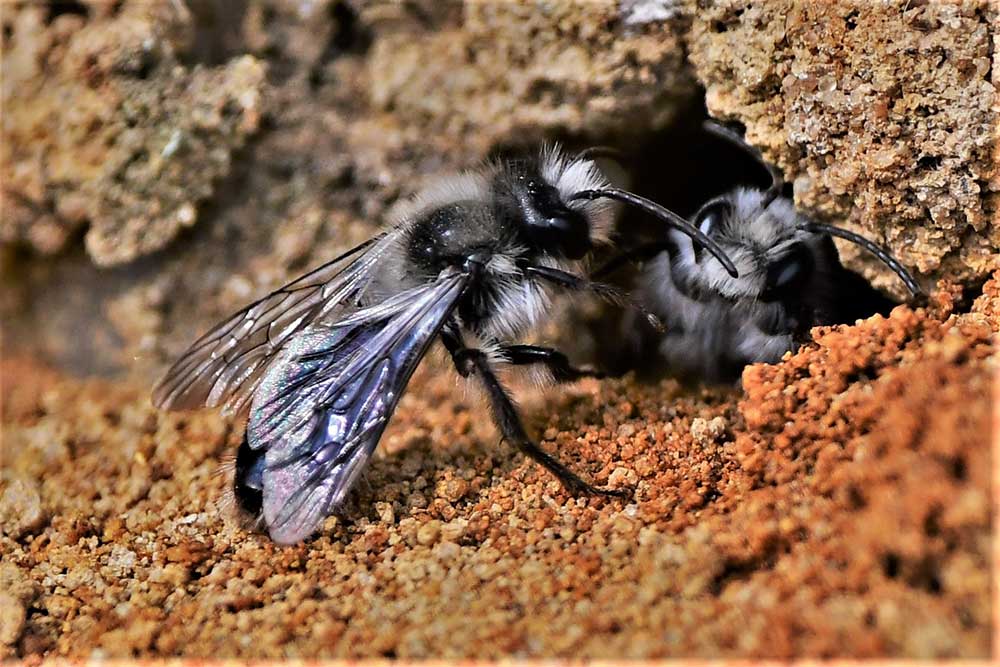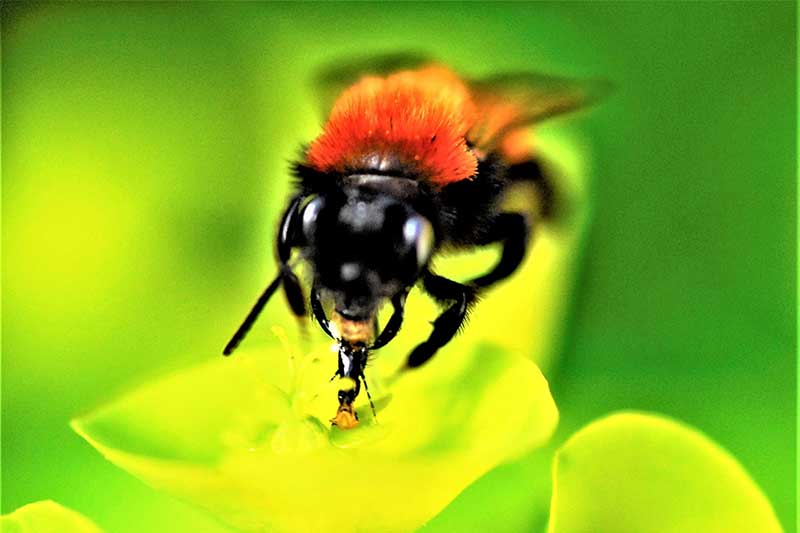Protecting our wild bees and wasps in urban areas

We are supporting intern Aaron to examine the health of bee and wasp populations throughout the West Midlands over the coming months
The problem
Without pollinating insects, we wouldn’t have many of the fruits and vegetables we’ve come to rely on, such as cherries, almonds, apples and broccoli. Here in the UK, there are over 4,000 difference species of insects that pollinate plants including bees, flies, beetles, butterflies and moths. We’re supporting Aaron Bhambra to examine the health of bee and wasp populations throughout the West Midlands.

Sand planter structure for bees 
Dark-edged bee fly Bombylius Major, a parasite of solitary bees (Img: Brian Baker)
The solution
A couple of years ago, Aaron proved his passion for invertebrates. He spent six months carefully exploring how to create effective nesting structures for wild bees. Now, he plans to expand his investigations further, recording and monitoring threatened species which inhabit green spaces across the region. He is attempting to create maps of bee and wasp populations which haven’t been surveyed before.
Pollinator communities and diversity across the country are suffering severe declines in abundance. A global crisis is looming unless radical action is taken to protect these vulnerable insects. Working with the RSPB and the Field Studies Council, Aaron is developing plans to conserve pollinating insects in urban areas. Using robust scientific evidence, he is creating guidance on what food sources are important for these animals. He is also proposing ways for the local council to ensure they are protected, and enhanced, in the future. Aaron is experimenting with nesting structures, which he designed a couple of years ago, to provide temporary bare earth habitats. These are being trialled in areas which currently lack resources for pollinating insects to establish healthy communities.

Ultimately, our aim is to educate, conserve and reverse the loss of important insects at a local level by increasing awareness of endangered species and providing the scientific evidence to facilitate the action necessary to halt the loss of biodiversity in our urban parks and cities.
This project is possible thanks to our generous donors. Can you help us continue?
